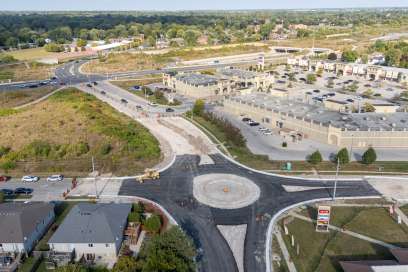14 New Cases Of COVID-19 In Windsor Essex As Of Tuesday
Tuesday July 14th, 2020, 9:52am
Hello time traveller!!
This article is 1890 days old.
The information listed below is likely outdated and has been preserved for archival purposes.
Last updated: Tuesday July 14th, 10:15am
The Windsor Essex County Health Unit has confirmed 14 new cases of COVID-19 as of Tuesday, bringing the local total to 1,829. They say 1,197 people locally have recovered.
Cases increased from 1,815 on Monday July 13th to 1,829 on Tuesday July 14th.
The Health Unit says 7 of the 14 cases are in the agri-farm sector, 6 are in the community, and 1 is still under investigation.
There have been no additional deaths due to COVID-19 as of Tuesday and the local death toll stands at 68.
The Health Unit says Riverside Place and Augustine Villas remain under outbreak.
Six workplaces are under outbreak as of Tuesday. One manufacturing facility and one agri-farm in Leamington are under outbreak, and four agri-farms in Kingsville are under outbreak.
A workplace outbreak is declared when two or more employees test positive for COVID-19 within a reasonable timeline to suspect transmission in the workplace, according to the Health Unit.
Health Unit CEO Theresa Marentette says since the beginning of July, Health Unit inspectors have conducted 154 inspections at local businesses related to complaints about patio regulations and the wearing of masks.
Cohesion Study
Marentette introduced guest speakers Dr. Kate Zinszer from the University of Montreal and Dr. Kevin Milne from the University of Windsor who announced they are looking for participation in a national study related to COVID-19.
The Cohesion Study is being led by a team of researchers across Canada who are evaluating the impact of the COVID-19 outbreak on individuals. Researchers will be gathering anonymized date related to attitudes and practices related to COVID-19 and containment measures, data on daily mobility and changes in social activities, data related to mental health, social isolation and stigma, and data related to socio-demographics, food security, and household composition.
“The goal [of the study] is to work with our public health partners and providing the information needed to tailor interventions or to develop interventions that could help support people,” says Dr. Zinszer.
She says the results could be used for example to support policies for mental health services.
“[COVID-19] has had a major impact on the mental health of Canadians so understanding how at the local level can mental health service access be improved and what exactly needs to be put in place to help with the access and reduce the barriers to mental health services,” Dr. Zinszer said.
You can learn more about the study or participate on their website.
























